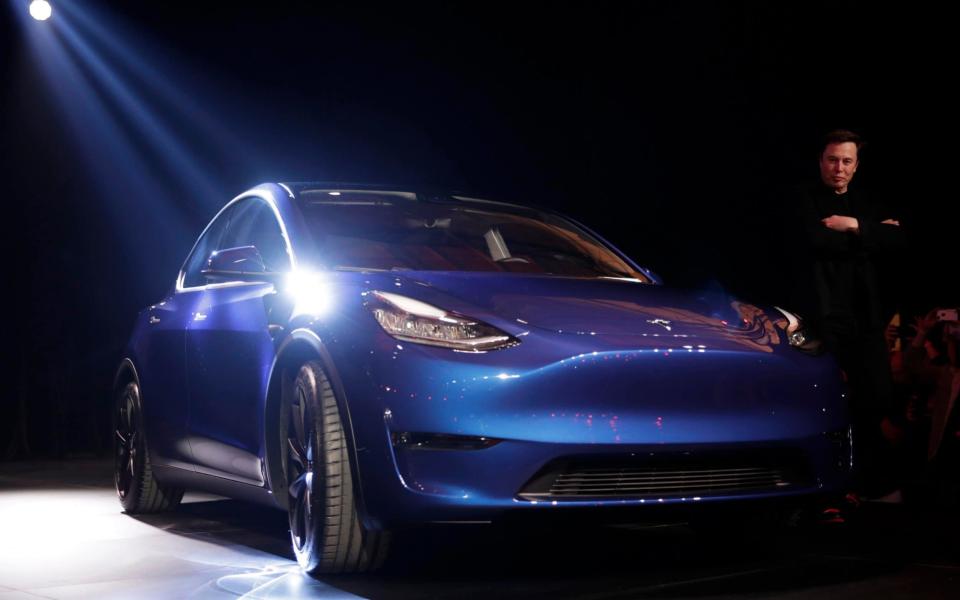Tesla reports $700m loss as it cuts prices and struggles to deliver cars to customers

Tesla lost $702m (£544m) in the first three months of 2019 and has said it will not make a profit until the second half of this year.
The electric car company blamed a decline in in cashflow on logistical problems getting cars to customers in Europe and China, which pushed many deliveries into the second quarter.
The loss is a blow to Tesla after two consecutive profitable quarters. Last year its chief executive Elon Musk said he expected Tesla to be continuously profitable, but lower-than-expected sales have now pushed the company into the red.
The margin on its most affordable Model 3 car also declined slightly to 20pc, and the profit margins on its Model S and X cars also fell, partially due to price cuts. Revenue was $4.5bn, below analysts' expectations, a fall of more than a third since the final quarter of last year.
It also repaid a $920m convertible bond, meaning it ended the quarter with $2.2bn in cash, compared to $3.7bn at the end of 2018.
The company's share price was down 2pc before markets closed but rose slightly in after-hours trading.
Mr Musk hinted that the company could raise money, telling investors on the quarterly earnings call: "At this point there is some merit to raising capital. It is probably about the right time."
Having previously said he expected a small profit, Mr Musk said in February upon launching the long-promised $35,000 Model 3, and cutting the prices of the Model S and X, that the company would make a loss in the first quarter.
At the start of the month Tesla warned that first-quarter income would be negatively impacted by "lower-than expected delivery volumes".
It delivered around 63,000 cars in the first three months of this year, significantly lower than the 76,000 deliveries predicted by analysts.
In its letter to investors the company reaffirmed its earlier guidance that it would deliver 360,000 to 400,000 cars this year and said it could produce as many as half a million vehicles worldwide.
Speaking to analysts on Wednesday, Mr Musk said he was confident that consumer demand for his cars would rise as the year went on. "Overall, I feel really good about the way things are headed," he said. "My impression right now is that demand is quite solid, quite strong."
Tesla recorded its first profit in two years in October, and a second, smaller profit in January, the first back-to-back profit in its history.
But it has since been plagued by a revival of last year's legal woes, with US regulator the Securities and Exchange Commission arguing that a tweet by Mr Musk violated an agreement not to share market-moving information about his company.
On Monday the company held an autonomy day for investors, promoting its new proprietorial chip and self-driving computer, and claiming that it would put a million self-driving taxis on the road next year.
It also offered analysts rides in car with the autonomous technology. Some were impressed with the demonstration, with venture capital firm Loup Ventures saying its ride was "at times, jerky but overall most impressive".
However, investors were sceptical about the short time-frame for the rollout, with Loup predicting it would happen one to three years later than Mr Musk predicted.
On Tuesday evening Tesla also announced that the most long-range version of its Model S car would be able to travel 370 miles between charges, up from 335 miles previously.

 Yahoo Finance
Yahoo Finance 